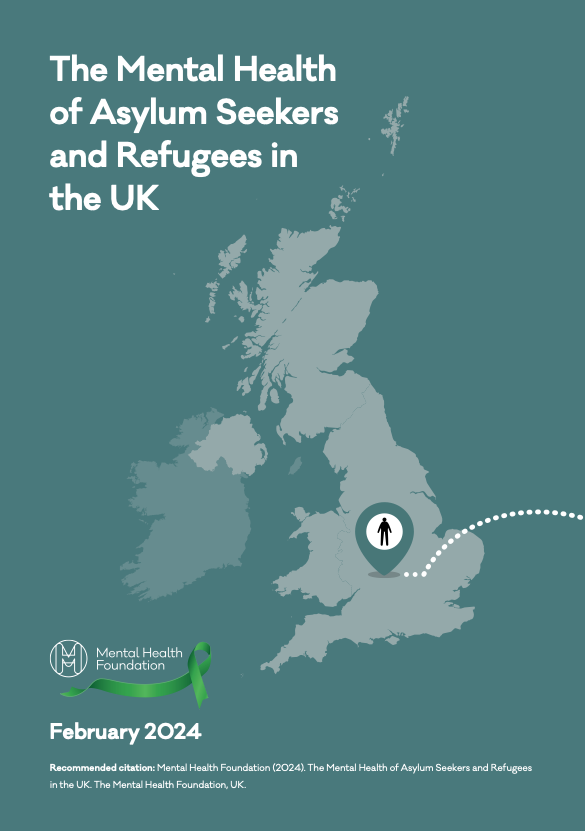This report by the Mental Health Foundation (February 2024) presents evidence on the circumstances which asylum seekers and refugees in the UK can face, and how these experiences can harm their mental health and even lead to suicidal feelings and actions. Asylum seekers and refugees are at particular risk of mental health problems. These may develop because of their experiences in their countries of origin, during their journeys, or after they arrive in the UK. “Read our report to understand why asylum seekers and refugees are at particular risk and what we, as a society, can do to protect their mental health once they arrive in the UK.”
Source: Mental Health Foundation, February 2024
Asylum seekers and refugees face many barriers to achieving and sustaining good mental health, as their pre-and post-migration experiences place them at higher risk of experiencing mental health problems.
In their home countries or during their journeys
Pre-migration experiences may include torture, war, imprisonment, physical assault, sexual assault, loss of livelihood, and losing close family or friends [2]. Trauma may also be experienced on migrants’ journeys to the UK, which are sometimes long and perilous.
In addition to the distress these experiences cause, they can exacerbate existing mental health conditions and lead to the development of new ones. Exposure to violence and trauma increases migrants’ risk of post-traumatic stress disorder (PTSD) [3][4], they are more likely to experience depression [5][6], and anxiety disorders [7], and are a high-risk group for suicidal ideation [8]. Internationally, around 30% of refugees and asylum seekers have been found to experience PTSD, with the figure for those experiencing depression also around 30%. [9].
On arrival to the UK
The social and economic conditions in which they live post-migration can have an equally powerful influence on their mental health. Experiences of poverty, financial insecurity, unemployment, lack of adequate housing, social isolation, loneliness, prejudice, stigma, and discrimination all carry a higher risk of poor mental health [10], and asylum seekers and refugees are at higher risk of experiencing all these inequalities. Asylum seekers will also often be dealing with stress about the status of their claim and challenges in accessing healthcare.
What can we do?
The UK government, devolved administrations, and local authorities have the power – and the responsibility – to address these social determinants of poor mental health, both directly and through supporting the third sector. This report sets out how they can work together to create a society that respects the dignity of asylum seekers and refugees and provides the building blocks that underpin good mental health.
How can we protect the mental health of refugees and asylum seekers?
In our report, we make the case for a trauma-informed and person-centred approach to asylum claim processes, housing, education, health and care provision experienced by asylum seekers and refugees.
We also address the urgent need for greater support for asylum seekers’ and refugees’ integration into their communities in the UK, and propose changes to existing government policies and public service practices to avoid the risk of re-traumatisation and other harms to the mental health of those seeking asylum and refuge.
Many of the systems and processes in the UK do not work well for asylum seekers and refugees. The report makes policy and practice recommendations as to how systems and processes could be reconfigured to do no further harm to people who have come here to make a new life after fleeing war, persecution, sexual violence, and other deeply traumatic experiences. It sets out how we could take a compassionate approach to better supporting their mental health, limit the severity of the mental health problems many experience, and reduce the risk of them taking their own lives.
Recommendations
Our policy and practice recommendations for protecting the mental health of refugees and asylum seekers come under these main areas. Read our recommendation in the report.
- Mental health considerations must inform all policy development.
- Promoting integration, supporting wellbeing, and reducing hostility and discrimination.
- A trauma-informed approach.
- Reducing financial and housing stressors.
- Employment: reducing barriers to work and training.
- Education: reducing barriers to thriving in education.
- Healthcare and preventative mental health programmes.
- Improving accessibility of public services.
- Suicide prevention: making asylum seeker and refugee suicides visible.
